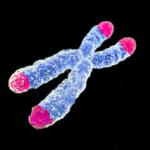“To prepare a tasty crispy chicken sandwich, you need a four-pound bird.
biomarkers
If your family or friends have not been touched by Parkinson’s Disease, a neurologic disorder characterized by uncontrolled or unintended movement, Michael J. Fox is the person that might come to mind.
“It is the very error of the moon: She comes more nearer earth than she was wont, And makes men mad.”
- Othello, William Shakespeare
It's a new week, and a new dietary study. This is from the Lancet, and it is a two-year randomized control trial of calorie restriction.
A new study in Translational Psychiatry sought to elucidate whether reduced telomere length (TL) is associated with childhood trauma in those with schizophrenia (SZ) and bipo
There are many questionable aging-related products on the market. One of the more recent is TeloYears, a test that supposedly determines your "true age" by measuring the length of a structure on your chromosomes called telomeres.
More than 4,000 scientists from around the world








